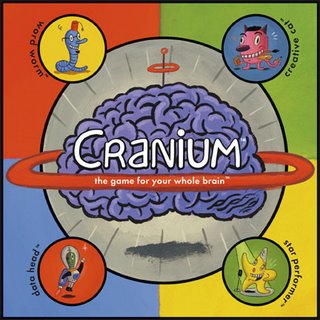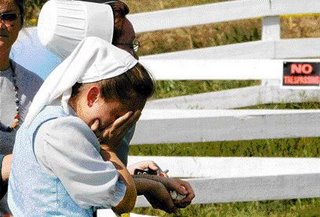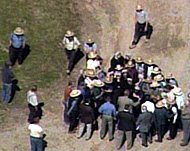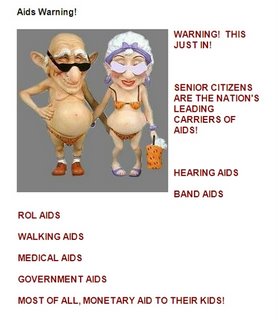
The heart of the matter
by Fiona Hughes-staff writer
At 22, Andrea Marrie is the picture of health. The athletic Campbell River native is five-foot-eight inches and an enviable 126 pounds. (She knows because she weighs herself every day, but not for body image-related reasons). Clear-skinned and with bright green eyes, Marrie has been hitting the slopes of Vancouver Island's Mt. Washington all winter where she coordinates ski lessons. She graduated with a biology degree last year at UBC and hopes to return to the university in the fall to start a master's program in occupational therapy.
To look at her, you wouldn't know about the life-threatening ordeal she experienced less than a year ago-except for half-inch wide scar that peeks out from the opening in her blouse. Stretching to below the rib cage, it's the kind of scar often associated with open heart surgery.
Her near-death experience began not long after she celebrated her 22nd birthday, when she, like many of her friends and fellow students, came down with what she thought was a simple bout of the flu.
Her bizarre story and even more startling recovery began last March. Marrie was working at one of her two part-time jobs while studying at UBC. It was a Friday night and she was at the East Side home of a wheelchair-bound man with a brain injury. Marrie was his homecare support worker for the evening. As the evening progressed, her hands and arms began tingling and she felt dizzy. She had been feeling unwell for a few days, but decided to go to work.
She could handle a cold, but what was happening to her then was more than run-of-the-mill aches and sniffles.
It frightened her enough that she called her boyfriend, Kenny Prichard, who was just coming out of a night class, to tell him she was beginning to feel very sick. As they were talking, her condition deteriorated and she decided she'd better call 911. After hanging up, her boyfriend and one of Marrie's roommates raced to meet her.
"I called 911 because it didn't feel normal," Marrie recalled. "I was kind of freaking out at this point."
As she was on the phone with a 911 operator, she broke into a cold sweat, fainted and dropped the phone, unable to tell the operator her location. Prichard and her roommate Kelsey Ragan arrived and found Marrie lying on the floor with the 911 operator still on the line.
"She was very pale and totally weak," Prichard recalls. "She could barely open her eyes. She was sweating but her palms were very, very cold. At this point, I realized this was more serious than we thought."
The ambulance arrived quickly and raced Marrie to Vancouver General Hospital, where she waited two hours to be seen. The ER staff diagnosed her with dehydration and the flu, but they kept her for observation overnight. Prichard left at 3 a.m.
Fairly certain it was a simple case of the flu, doctors released her the next morning with fluids to rehydrate. Prichard picked her up at 8 a.m. and took her home. It wasn't long before she started vomiting and feeling lightheaded.
Ragan insisted she go back to the ER, but this time at UBC Hospital nearer where they lived. Marrie felt too embarrassed to return to VGH.
"I didn't want to go back to the ER for just the flu," Marrie says. "I thought I'd tough it out. When we got there, I sat down and told Kelsey my roommate to go home and finish her term paper and that I'd be fine. I don't remember anything after that until waking up a week and a half later at St. Paul's Hospital."
After examining Marrie, UBC Hospital emergency staff raced her back to VGH. Prichard and Ragan, who sensed her roommate's illness was more than a flu and had not gone home to finish her term paper, followed by car. When they arrived at VGH and saw an unconscious Marrie hooked up to a breathing machine, multiple tubes and IV lines, and with half a dozen doctors hovering around her in the coronary care unit, Prichard's heart sank.
"I knew it was really bad then and I was freaking out at that point," he says. "I never thought she had something that could kill her. We asked the doctors how bad it was so one of them took us aside and sat down with us and told us it was very serious. They were brutally honest and bluntly told us, 'There is a possibility she could die tonight.'"
Marrie's parents had been called on Vancouver Island, but couldn't make it to Vancouver until the next morning. Prichard and Ragan were told to say their goodbyes.
 That night, Dr. Anson Cheung was preparing for a trip to London, England the next day when his cellphone rang. It was VGH. He was told about a young woman who had gone into "cardiogenic shock" or heart failure, and to come to the hospital immediately.
That night, Dr. Anson Cheung was preparing for a trip to London, England the next day when his cellphone rang. It was VGH. He was told about a young woman who had gone into "cardiogenic shock" or heart failure, and to come to the hospital immediately.Marrie's heart had failed so badly it could barely pump blood. Her body was going into shock and her other organs were shutting down. Marrie was dying.
Cheung, the surgical director of heart transplantation at St. Paul's Hospital, quickly hooked her up to an ECMO-a heart-lung machine that performs the functions her heart could no longer do-and transferred her to St. Paul's, the province's heart centre.
"The [ECMO] is quite bulky and it was a bit difficult to transfer her but we did it," says Cheung, who kept Marrie on the ECMO for another day.
Despite not knowing exactly what caused Marrie's heart to fail (the main theory, although even now no one is certain about the cause, is a virus due to the rapid onset of illness), Cheung and the transplant team at St. Paul's, including clinical nurse specialist Annemarie Kaan, concluded that she was a candidate for a heart transplant. But since no heart was available, Cheung inserted a mechanical heart pump, or ventricular assist device (VAD) into her abdomen. He is the only surgeon in the province trained to insert VADs. If Marrie had fallen ill one day later, she may not be alive today. Although Cheung would have flown straight back from England, he may not have arrived in time.
Cheung cracked open Marrie's rib cage to insert the one-and-half pound VAD into her abdomen and attach two tubes to the left side of her heart. The device was then connected to a battery-operated portable driver, or air compressor, which looks like a piece of carry-on luggage that can be wheeled around.
The VAD took over the pumping function of Marrie's heart. Ventricular assist devices are only used on critically ill patients who need a transplant and risk dying if a donor heart is not found soon. Patients with a VAD can return home and resume a more normal and relatively active life. By living at home rather than in hospital, patients increase their strength, which increases the chances of a successful transplant operation. Last year, 13 British Columbians received a VAD. Marrie was one of two patients requiring two of the devices. One in four patients who get a VAD, however, will die waiting for a transplant.
In most cases, a VAD is connected to the left and most important side of the heart, which pumps oxygen-rich blood to muscles, skin and organs. The right side of the heart receives the blood that has come back from body tissue and pumps it into the lungs, where it receives a fresh supply of oxygen.
The procedure, which Cheung had done numerous times at St. Paul's since introducing the VAD program at the hospital in 2001, took four hours. The surgery was a success, but Marrie wasn't in the clear. Her heart was getting worse.
A day after receiving her first VAD, Marrie was back in surgery to get a second fist-sized pump inserted into her right side.
"Usually, with bad heart failure if we fix up the left side of the heart the right side of the heart starts to get stronger as well," explains Kaan, an Australian nurse who was recruited to work at St. Paul's VAD program. "If not, we insert a second pump, which is very rare. It only happens in five per cent of [heart transplant] candidates. Andrea obviously needed a second VAD."
About a week after receiving the second pump, Marrie finally woke up. She remembers the moment with vivid clarity.
"I was delirious, confused and paranoid," the 22-year-old recalls. "I wasn't aware I was on the VAD when I woke or what had been done to me and I couldn't talk properly yet. But I could tell my mom was so happy and relieved to see me open my eyes."
Less than 36 hours after surgery, Cheung made Marrie stand and walk.
"I was scared trying to feel if my heart was beating. I was constantly putting my hand over my heart to see if I could feel it beating," she says.
Marrie then found out that she was on the wait list for a heart transplant if her heart couldn't recover on its own. Statistics weren't in her favour. No one in Canada and only a handful of patients around the world had ever survived without a transplant after receiving two VADs.
"It's a very rare occurrence for a patient to recover when two devices have been inserted," says Cheung, who trained at the University of Manitoba, Western, Stanford and was recruited to come back to Canada to work at St. Paul's. Cheung had previously been working and training in Pittsburgh, where he specialized in inserting VADs. In 2001, St. Paul's became the first hospital in Western Canada to insert VADs. There are now 10 centres across Canada inserting the devices, which have been extensively used in the U.S., Australia and Europe for two decades.
Canada was slow to introduce VADs because of a lack of trained surgeons and their prohibitive cost. Marrie's two titanium pumps cost $50,000 US each. The portable driver costs $75,000 US but can be reused for different patients. The pumps are a one-time use only device because blood flows through them, making them a biological hazard.
News of a transplant came as a shock to Marrie. Two weeks earlier, she'd been out on her regular five-kilometre run and had been snowboarding at Whistler and Mt. Seymour and playing intramural Ultimate at UBC. She was young and healthy. Heart transplant candidates are typically male, 50 or older and with a heart damaged from a heart attack.
With support from friends and family and a hospital psychologist, Marrie adjusted to the devastating news and her new life attached to a mechanical heart. She even developed a sense of humour about it all.
"My friends and I started calling the pumps Vaddie," she says smiling over peppermint tea at a Kits caf‚ recently.
Prichard admits that Marrie had her share of ups and down, but stayed positive and motivated.
"She was remarkably strong and tough during her recovery," says Prichard, who remains good friends with Marrie, from his home in Toronto. "Andrea has always been a motivated person in terms of school, work and friends and family. She had periods of frustration, but she mostly stayed positive and upbeat."
Five weeks after her two surgeries, Cheung discharged Marrie from St. Paul's. But she couldn't leave Vancouver just yet. She needed to stay close to the hospital for physiotherapy and regular monitoring of her heart and VADs. Her parents each took a leave of absence from their jobs and rented a basement suite in the city to be with their daughter. Marrie led as normal a life as possible, spending time with Prichard and her friends, going to the beach, which Cheung didn't like because of worries sand could get into the driver. Not all VADs require a portable driver. Some patients, larger men for example, are inserted with heavier pumps powered by a battery pack worn around the waist like a belt.
The average time on a VAD is six months, but one B.C. patient has stayed on a pump for 17 months. Cheung, who's earned the nickname "cardio cowboy" for his pioneering work in the area, said a patient can live for years on a VAD.
He also predicts that in five to 10 years, VADs will eliminate the need for heart transplants altogether.
"With the advance of these devices, their durability, their decrease in size and livability, [VADs] will become as common as pacemakers-we will be able to implant them permanently," says Cheung, who performs 90 per cent of heart transplants in B.C. "A person will be able to live on these pumps until they die at a normal age. With transplants, a heart only lasts 12 years on average and a patient has to be on anti-rejection drugs."
These devices, however, are not suitable for children.
"This is not a long-term solution for them. They are still growing, they're too small for the devices, they can't look after them properly."
Three and a half months after her ordeal started, Cheung and Kaan sat down with Marrie to inform her they wanted to remove the pumps. Marrie was happily surprised-and scared. The "Vaddie" twins had become a security blanket. Marrie knew her heart had gotten stronger, but she was still nervous about not having the pumps as backup.
Cheung and Kaan reassured Marrie her heart was robust and ready to work entirely on its own-and it did. Marrie's heart made Canadian medical history.
"Andrea is the only patient in Canada who had two VADs removed and had full recovery of her heart," Cheung says. "That only happens in about two per cent of cases worldwide."
Although still recovering, Marrie eventually moved back in with her roommates and her parents returned to their jobs on the Island. To keep busy, she took two courses at UBC and finally learned to cook. She's on two types of medication that she takes multiples times a day. Eventually, she'll be down to one medication, but she'll be on it for the rest of her life to ensure her heart beats in a slow steady rhythm.
"Andrea's heart rate was quite high when she was sick and if it [beats] too fast for too long, it can stress the heart," Kaan says.
Marrie is vigilant about her salt and fluid intake. She's allowed a maximum of 1.2 litres of liquid a day while in recovery. (Less fluid lightens the workload for the heart.) It's the reason she weighs herself every day at 9 a.m. Marrie weighed 135 pounds before falling ill and dropped to what she describes as an anorexic-looking 108 pounds while in hospital.
"If I gain three pounds a day it could be a sign of heart failure," Marrie explains, noting the weight gain would be fluid buildup. "I also check my blood pressure every other day."
Although she's been told she's completely in the clear, Marrie has had her share of panic. During her first night staying over at Mt. Washington, Marrie worried about her distance to the nearest hospital. Another time when she was snowboarding and hiking up a hill, she ran out of breath.
"'Hey, are you guys out of breath?' I asked the friends with me. They all said yes so I knew I was OK."
Marrie wants to travel and to visit Prichard in Thailand where he's just left for a UN internship to work with refugees. Maybe one day she'll have a family. But she wonders if all those things are possible.
Of course, says Cheung.
"Andrea's prognosis is excellent," he says. "She can train for a marathon if she wants and I would encourage her to travel. She can do whatever you or I do."
published on 01/26/2007
































